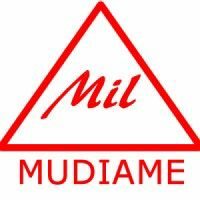Nigeria’s drive to strengthen its industrial and service competitiveness is receiving a new boost as Mudiame International Limited has partnered with Germany-based Exzellenz Bewertungs Systeme (EBS) to promote a nationwide culture of international certification and quality management.
Through this partnership, Mudiame International becomes the official African representative of EBS, an internationally recognised standards and certification body, marking a new chapter in Nigeria’s integration into the global quality assurance ecosystem.
Set to launch its inaugural campaign later this month, the initiative seeks to expand awareness and adoption of key international frameworks such as ISO 9001 (Quality Management), ISO 14000 (Environmental Management), ISO 22000 (Food Safety Management), ISO 27000 (Information Security Management), and ISO 45000 (Occupational Health and Safety).
At the virtual launch, experts and assessors from Germany and the United States will engage Nigerian stakeholders across industries to discuss how certification frameworks can transform organisational performance, enhance public confidence, and drive sustainable economic growth.
Speaking ahead of the event, Chief Executive Officer of Mudiame International Limited, Professor Sunny Eromosele, said the campaign was aimed at closing the certification gap that has long hindered Nigerian products and services from gaining global recognition.
“Our goal is to correct the long-standing perception that Nigerian goods and services are substandard. Many of our exports are rejected because they lack certification that meets global standards. This initiative provides a structured pathway to change that narrative,” Eromosele explained.
He emphasised that international certification is not just a regulatory requirement but a strategic tool for development — one that fosters transparency, innovation, and sustainability. “Strong management systems create efficiency and accountability. They reduce waste, improve safety, and make organisations more competitive,” he added.
Eromosele pointed to the oil and gas industry as an example of how Nigeria can benefit from standardisation. Over the years, the sector has built local capacity through compliance with international quality and safety standards, allowing indigenous firms to participate more actively in high-value contracts once dominated by foreign operators.
“What we achieved in oil and gas through standardisation can be replicated in other sectors — manufacturing, food processing, construction, and even governance. It’s about raising the bar for excellence and accountability,” he said.
The Mudiame chief further noted that the partnership with EBS would make certification services more accessible and affordable to Nigerian institutions, including small and medium-sized enterprises that often face cost barriers.
Beyond industrial gains, he said embedding ISO-certified systems within public institutions could improve service delivery, strengthen environmental governance, and reduce corruption by promoting traceability and operational discipline.
“This is a culture-building process. Certification is not just a badge — it’s a mindset shift towards doing things right, consistently,” he added.
Mudiame and EBS believed the collaboration will reposition Nigerian businesses to compete more effectively in global markets, attract foreign investment, and enhance the country’s image as a producer of quality goods and services.





